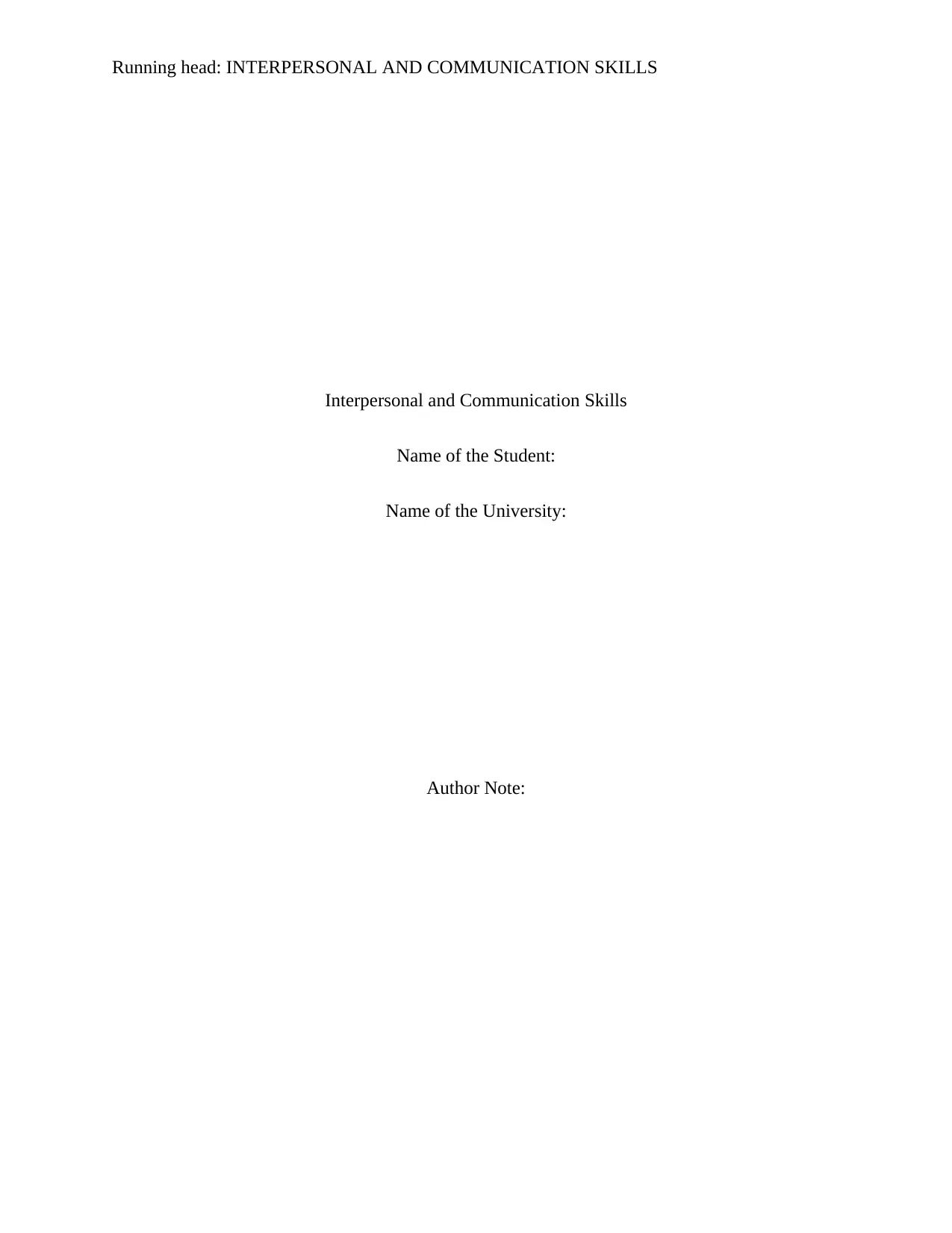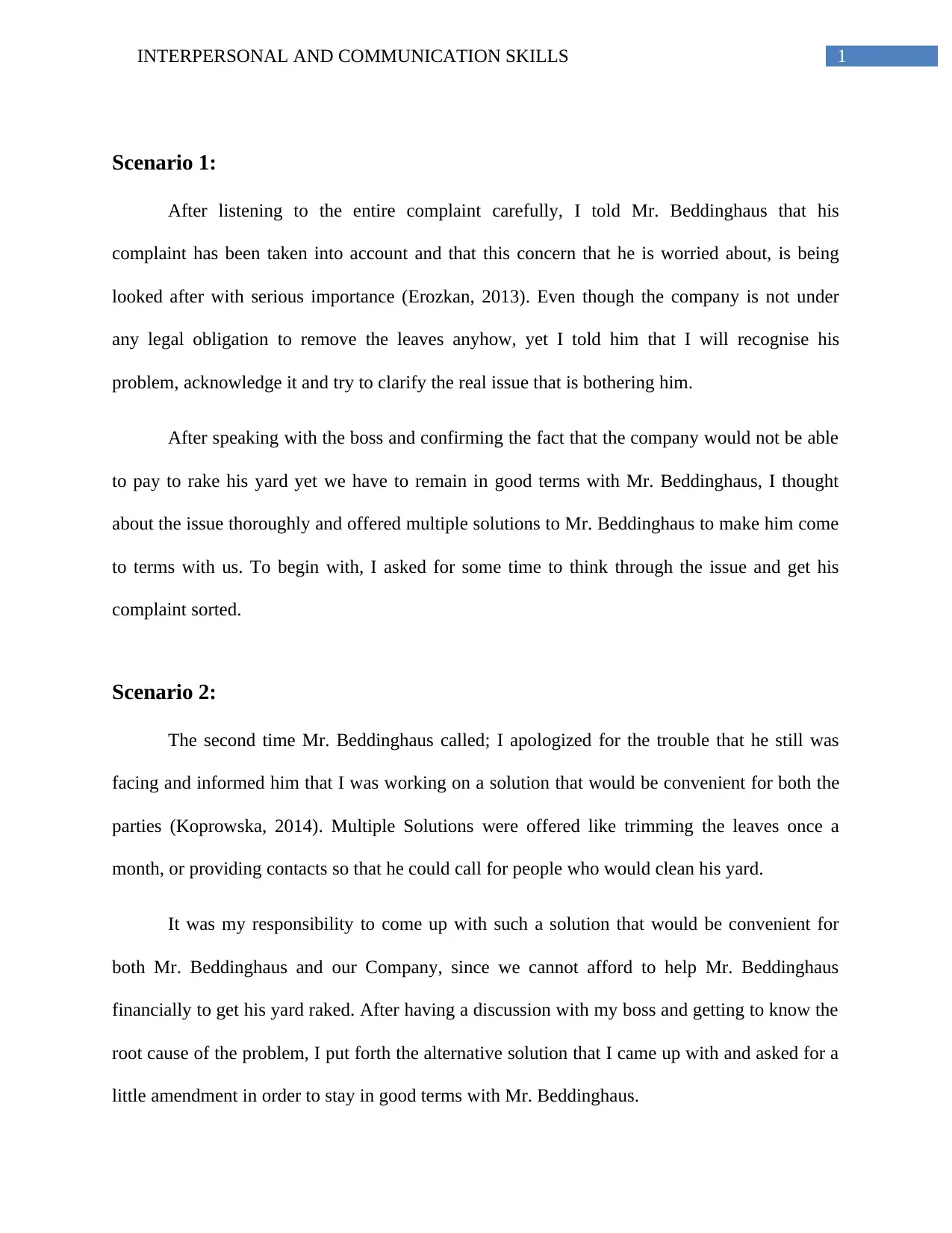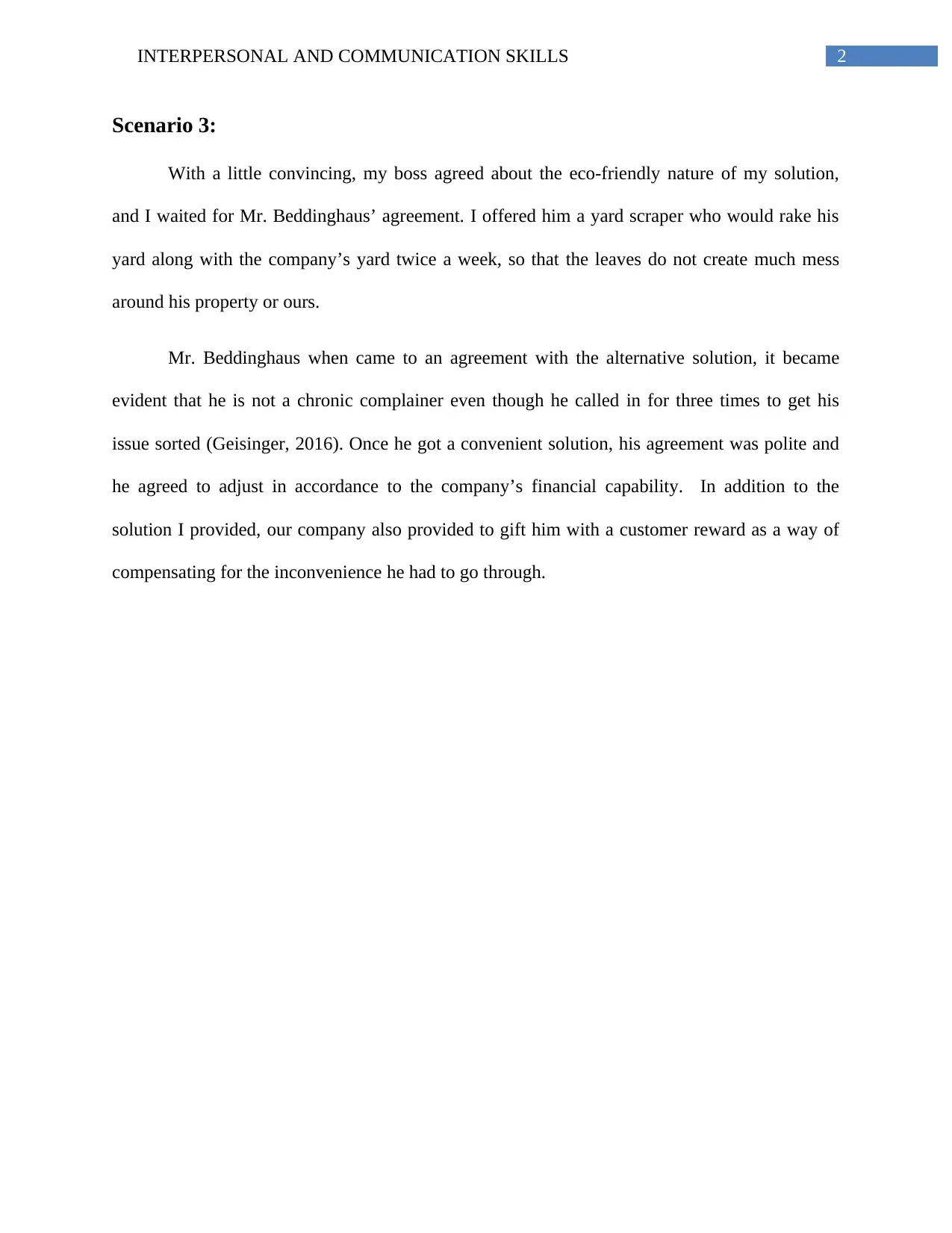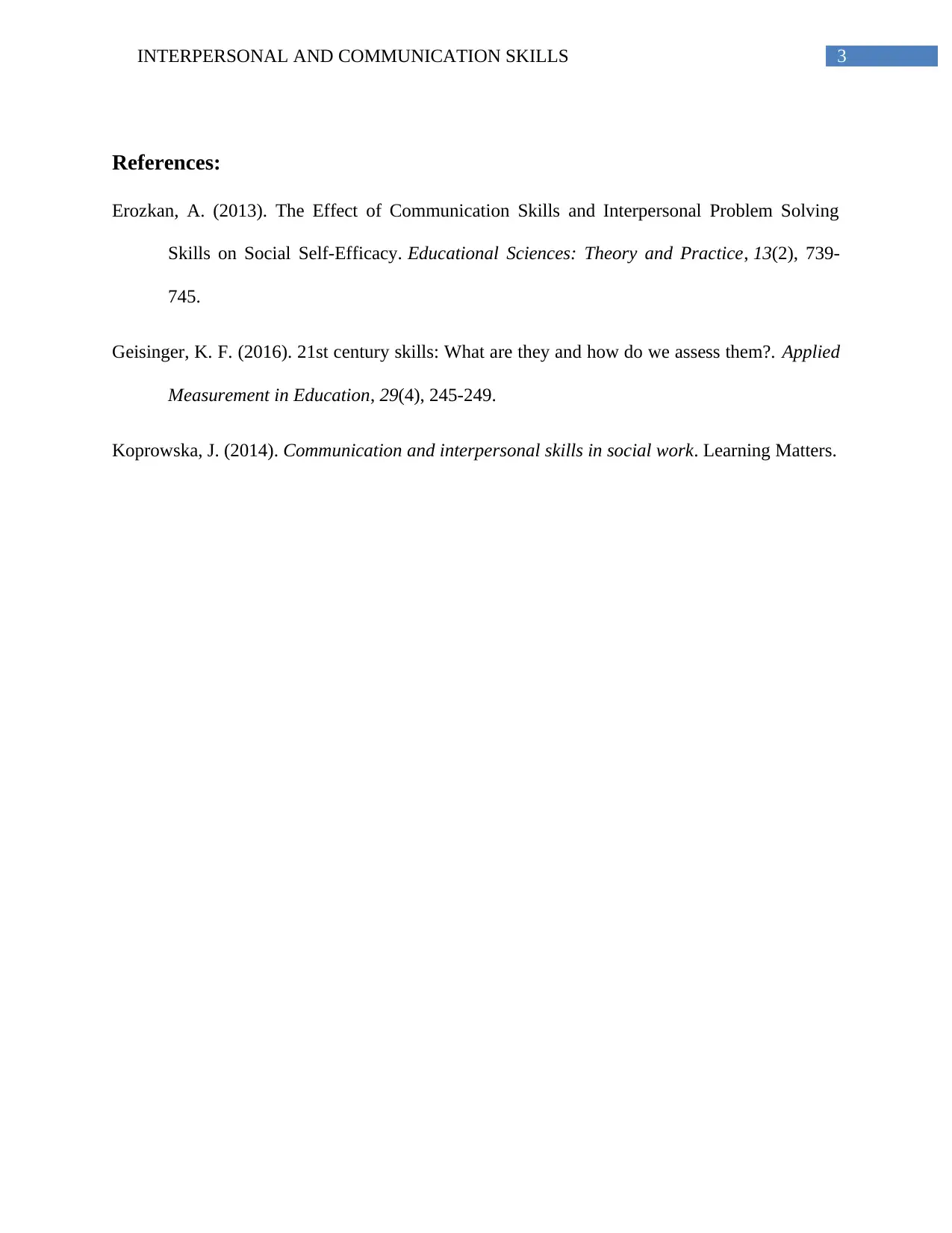Communication Skills: Addressing Customer Complaint Scenario Analysis
VerifiedAdded on 2022/11/25
|4
|606
|144
Homework Assignment
AI Summary
This assignment presents a case study involving an administrative assistant tasked with resolving a customer complaint. An elderly man, Mr. Beddinghaus, is unhappy about leaves from the business property falling onto his lawn. The student's solution outlines the steps taken to address Mr. Beddinghaus's concerns, including active listening, acknowledging his issue, and offering multiple solutions to find a mutually agreeable resolution, despite the business not being legally obligated to remove the leaves. The student demonstrates effective communication strategies, such as empathy and finding a compromise, while also addressing the challenge of gracefully ending lengthy phone calls and maintaining a positive business reputation. The solution also highlights how the company provided additional compensation in the form of a customer reward.
1 out of 4








![[object Object]](/_next/static/media/star-bottom.7253800d.svg)